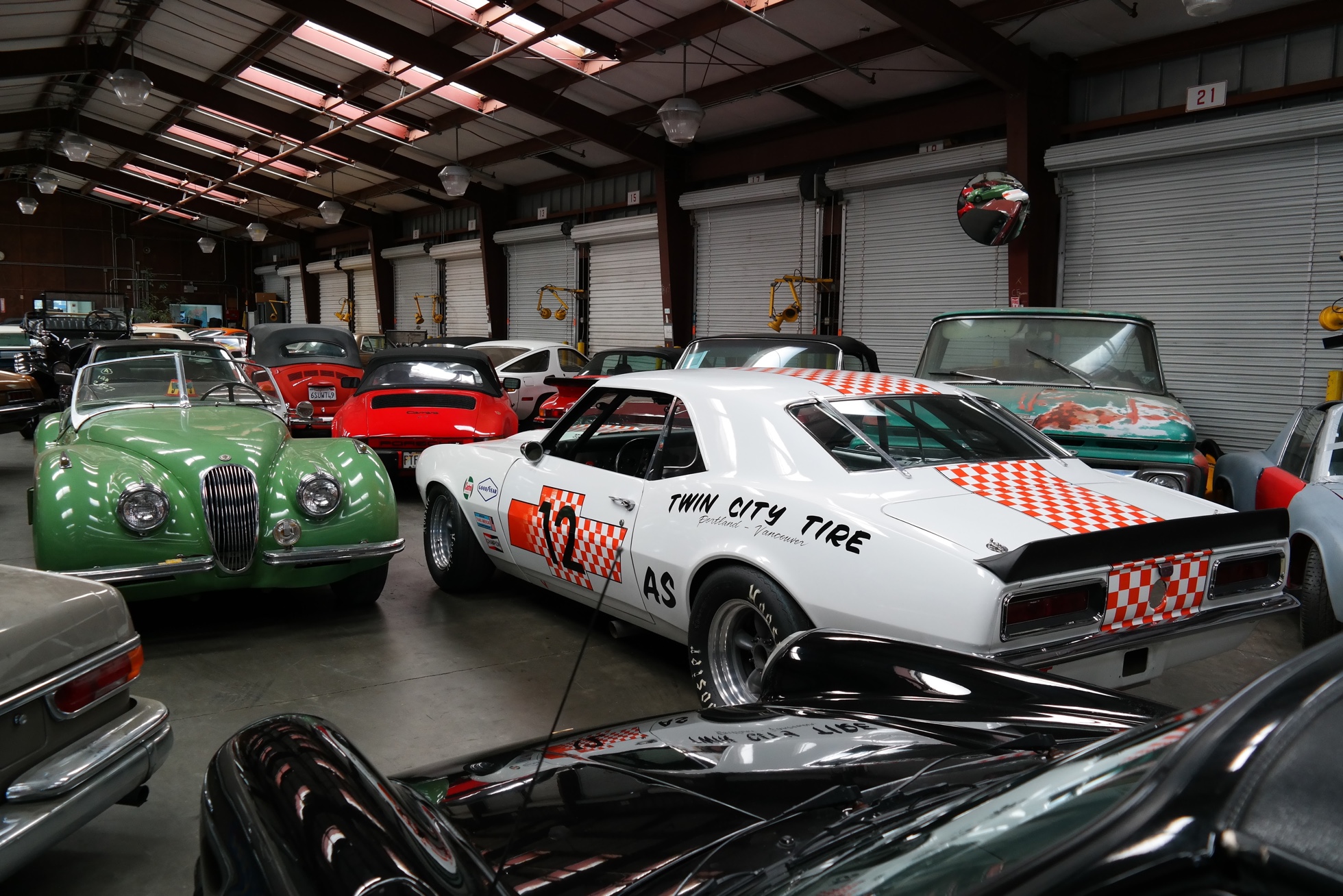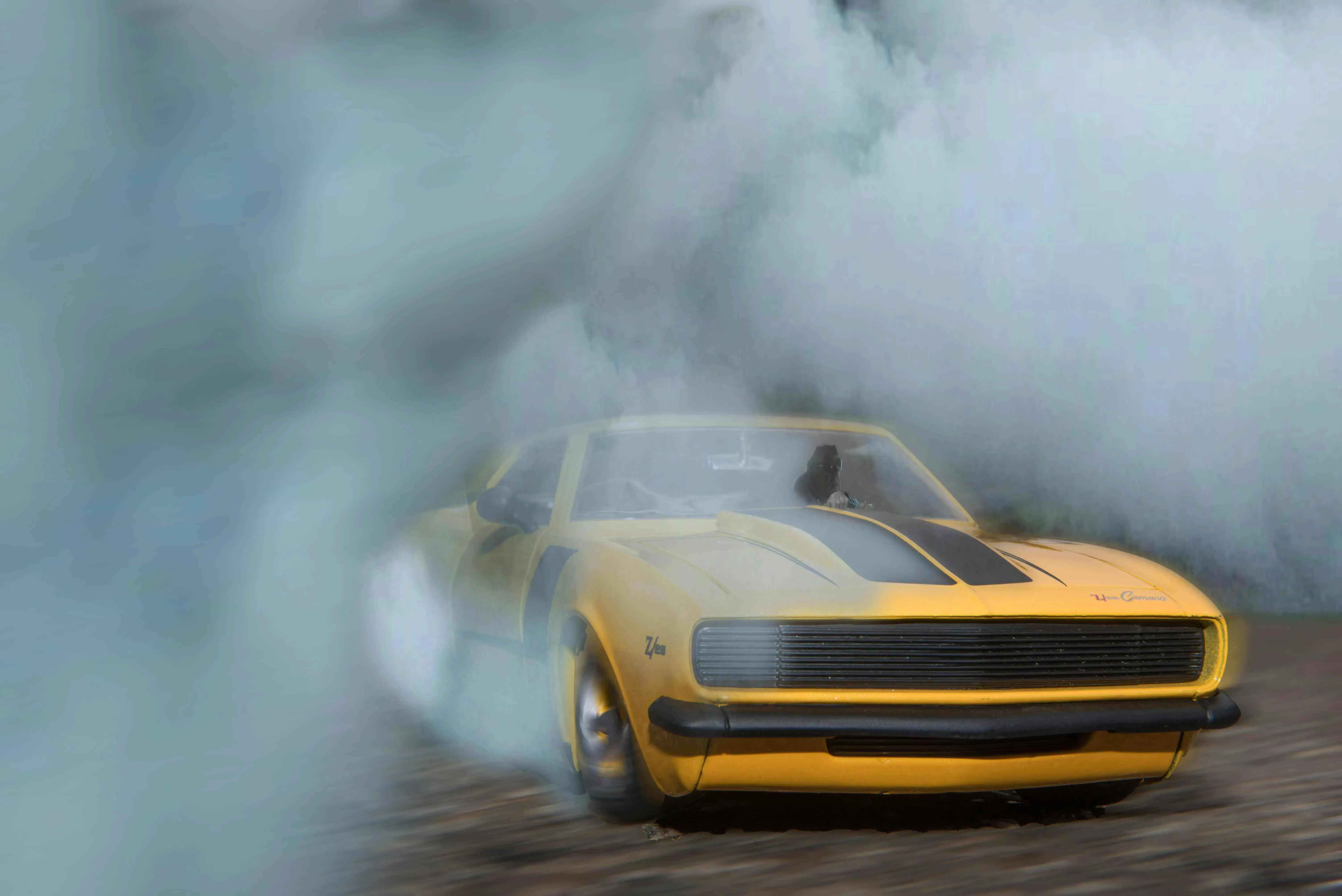Classic Car Emissions & Compliance Guide: International Shipping Rules
Introduction
At West Coast Shipping, we've helped countless classic car enthusiasts navigate the complex world of international emissions and regulatory compliance. While we've previously covered essential documentation requirements for international car shipping, the real challenge our clients face lies in understanding the intricate web of emissions standards, lighting regulations, and inspection requirements that vary dramatically between countries.
Through our years of experience shipping classic cars to destinations worldwide, we've seen how each country has its own interpretation of compliance for vintage vehicles. The Middle East, Europe, and other regions create a regulatory maze that can trap even the most prepared collector. Our expertise has shown us that original components often fail to meet modern standards, yet period-correct modifications can be prohibitively expensive or technically impossible.
Understanding Age-Based Exemptions: The Universal Dividing Line
Most countries recognize a fundamental distinction between newer classic cars and true vintage vehicles, typically drawing the line at 30 years of age. This threshold determines not only tax advantages but also the level of regulatory compliance required for international classic car exports.
The 30-Year Rule Advantage
Vehicles over 30 years old generally qualify for substantial regulatory relief across multiple jurisdictions. In Germany, cars meeting this threshold enjoy complete exemption from standard 10% import duties and reduced VAT rates of 7% instead of 19%. France follows similar patterns, offering classic cars over 30 years old reduced VAT rates of 5.5% and exemption from standard import duties.
The Sub-30 Year Challenge
Classic cars under 30 years old face significantly more stringent requirements. These vehicles must typically meet current emissions standards, safety regulations, and lighting requirements without the benefit of historical exemptions.
Middle East Regulatory Landscape
United Arab Emirates: A Growing Classic Car Hub
The UAE has emerged as a significant destination for classic car imports, particularly through Dubai's free trade zones. Our experience shipping to the Emirates shows that vehicles over 30 years old receive favorable treatment, though specific emissions testing requirements vary by emirate.
Dubai's Approach: Classic vehicles benefit from simplified import procedures through Jebel Ali Free Zone, with reduced customs duties for vehicles demonstrating historical significance.
Abu Dhabi Regulations: The capital emirate maintains stricter emissions standards, particularly for vehicles intended for regular road use rather than collection purposes.
Saudi Arabia: Vision 2030 and Classic Cars
Saudi Arabia's Vision 2030 initiative has created new opportunities for classic car enthusiasts. Our clients shipping to the Kingdom benefit from recent regulatory changes that recognize the cultural value of automotive heritage.
The Saudi Standards, Metrology and Quality Organization (SASO) has developed specific protocols for classic vehicle imports, focusing on safety rather than emissions compliance for vehicles over 25 years old.
Qatar and Kuwait: Collector-Friendly Policies
Both Qatar and Kuwait have developed collector-friendly import policies. Our experience shows that these countries prioritize documentation authenticity over strict emissions compliance for genuine classic vehicles.
European Union: TÜV and Technical Compliance
Germany's Rigorous TÜV System
Germany's TÜV inspection represents one of the world's most comprehensive vehicle compliance systems. As detailed in our complete guide to shipping vehicles to Germany, the process consists of two main components: Hauptuntersuchung (HU) for general safety inspection and Abgasuntersuchung (AU) for emissions testing.
For classic American vehicles, common TÜV modifications include amber turn signal conversions, rear fog light installations, and EU-certified seatbelt upgrades. Pre-1995 vehicles receive emissions exemptions, while post-1995 models must retrofit catalytic converters to meet Euro 1 standards.
Lighting System Requirements
European regulations mandate specific lighting configurations that differ significantly from US specifications. Headlights must display proper beam patterns for right-hand traffic, with amber side indicators and mandatory rear fog lights.
Classic car headlamps present particular challenges, as US market vehicles typically use sealed beam systems that require conversion to European specifications. Right-hand traffic markets require headlamps marked "RHT" or "LHD," while left-hand traffic countries need "LHT" or "RHD" designations.
United Kingdom: MOT and Post-Brexit Compliance
MOT Testing Framework
The UK's MOT test applies to vehicles over three years old, focusing on safety, roadworthiness, and emissions compliance. However, classic cars over 40 years old receive complete exemption from mandatory MOT testing, provided they haven't undergone substantial modifications in the last 30 years.
LED Lighting Regulations
Recent changes to UK lighting regulations have created confusion for classic car owners. Vehicles first used before April 1, 1986, can legally retrofit LED headlamp bulbs without MOT failure. However, cars built after this date will fail MOT testing if halogen headlamps have been converted to LED or HID operation.
United States: CARB and State-by-State Variations
California's Stringent Standards
California's Air Resources Board (CARB) maintains the nation's strictest emissions standards, with current exemptions limited to vehicles manufactured before 1976. Currently, vehicles from 1976 and newer face biennial smog testing in 34 counties.
State-by-State Exemption Variations
Emissions requirements vary dramatically across the United States. Nineteen states have no emissions requirements whatsoever, while the remaining 31 states plus Washington D.C. maintain various testing programs.
Asia-Pacific: Japan's Shaken System and Australia's ADR
Japan's Comprehensive Shaken Inspection
Japan's Shaken system requires comprehensive inspections every two years for all vehicles, regardless of age. For American muscle cars, the system presents particular challenges due to strict emissions requirements for post-1990 vehicles.
Australia's 25-Year Import Rule
Australia's Road Vehicle Standards laws allow import of vehicles over 25 years old with reduced compliance requirements. Classic vehicles benefit from simplified certification processes and exemptions from modern environmental standards.
Comparative Compliance Requirements by Region
| Region | Age Threshold | Emissions Testing | Lighting Modifications | Inspection Frequency |
|---|---|---|---|---|
| Germany (TÜV) | 30+ years | Pre-1995 exempt | Amber signals, rear fog lights | Every 2 years |
| UK (MOT) | 40+ years | Age-based exemptions | LED allowed pre-1986 only | Annual (if required) |
| UAE | 30+ years | Emirate-dependent | GCC standards | Varies by emirate |
| Saudi Arabia | 25+ years | SASO guidelines | Regional requirements | Annual |
| California (CARB) | Pre-1976 only | Biennial smog testing | US standards acceptable | Every 2 years |
| Japan (Shaken) | No exemptions | All vehicles tested | JIS compliance required | Every 2 years |
Container vs RoRo Considerations
The choice between container shipping and RoRo transport can significantly impact compliance preparation. Container shipping allows for secure transport of modification parts and documentation, while RoRo requires vehicles to be road-ready at both origin and destination.
Factory-Fit Headlamps vs. Aftermarket Solutions
Original Equipment Challenges
Factory-fitted headlamps often present the most significant compliance challenges for international classic car shipping. US-market vehicles typically feature headlamp assemblies designed for right-hand traffic with beam patterns optimized for American roads.
Conversion Solutions
Professional headlamp conversions typically cost between $800 and $1,500, depending on the vehicle and destination requirements. The process often involves complete replacement of lens assemblies, wiring modifications, and beam pattern adjustments.
Engine Swaps and Emissions Compliance
Age-Based Testing Standards
Engine swap compliance varies significantly between jurisdictions. In the UK, vehicles first used before September 1, 2002, are tested to vehicle age standards regardless of engine age, unless fitted with an older engine.
Period-Correct Modifications
Many jurisdictions allow period-correct modifications that maintain historical authenticity. Germany's H-Kennzeichen (historic registration) permits modifications using parts that were available during the vehicle's production period.
Our Practical Compliance Strategies
Pre-Shipping Preparation
Successful international classic car shipping requires comprehensive pre-shipping preparation. Our experience indicates that modifications performed in the US often cost significantly less than destination country conversions. Common preparations include headlamp conversions, speedometer modifications, and emissions system documentation.
Working with Auction Houses
For clients purchasing at classic car auctions, we provide specialized compliance consulting to ensure auction purchases meet destination requirements before bidding.
Documentation Requirements
Proper documentation proves crucial for customs clearance and compliance verification. Original titles, manufacturer specifications, and modification records must accompany shipments. For classic cars claiming historic status, authenticity documentation becomes essential for accessing preferential treatment.
The Future of Classic Car Compliance
Evolving Standards
Classic car compliance continues evolving as governments balance environmental concerns with automotive heritage preservation. The Middle East's growing recognition of classic cars as cultural assets creates new opportunities for collectors, as detailed in our export destination analysis.
Technology Solutions
Modern technology offers solutions to traditional compliance challenges. LED headlamp conversions provide improved visibility while meeting energy efficiency requirements where permitted. Electronic engine management systems can help vintage engines meet emissions requirements without sacrificing performance.
Regional Market Opportunities
Middle East Growth Markets
The Middle East represents one of the fastest-growing markets for American classic cars. Our overseas selling guide highlights how collectors in Dubai, Riyadh, and Doha increasingly seek authentic American muscle cars and European classics.
European Collectors Market
European markets continue to show strong demand for American classics, particularly those meeting the 30-year exemption threshold. Our Germany shipping expertise has helped hundreds of collectors successfully import and register classic vehicles.
Our Commitment to Your Success
Successfully navigating international classic car compliance requires understanding the complex interplay between age-based exemptions, destination-specific requirements, and modification options. The 30-year threshold emerges as a crucial milestone across most jurisdictions, providing significant regulatory relief for qualifying vehicles.
At West Coast Shipping, we understand that classic car ownership represents more than transportation—it's about preserving automotive heritage and pursuing passion. Our comprehensive shipping services ensure your classic arrives ready for registration and enjoyment, not costly modifications and delays.
Whether you're shipping a numbers-matching muscle car to Germany, importing a restoration project to Australia, or bringing a vintage European sports car to the Middle East, proper preparation makes the difference between success and frustration.
Our decades of experience have taught us that every classic car shipment is unique, with its own compliance challenges and opportunities. We work closely with each client to understand their specific requirements and develop customized solutions that protect both their investment and their dreams.
From auction house logistics to container versus RoRo shipping decisions, our team provides end-to-end support for every aspect of international classic car shipping.
Ready to ship your classic car internationally?
Contact West Coast Shipping today for expert guidance on compliance requirements and professional shipping services that protect your investment every mile of the journey.
You May Also Like
These Related Stories

The Ultimate Guide to Selling Classic Cars Overseas

Can Modern US V8 Muscle Cars Pass EU Emissions? Compliance Guide

-093789-edited.png?width=220&height=79&name=wcs_final_logo_(1)-093789-edited.png)
